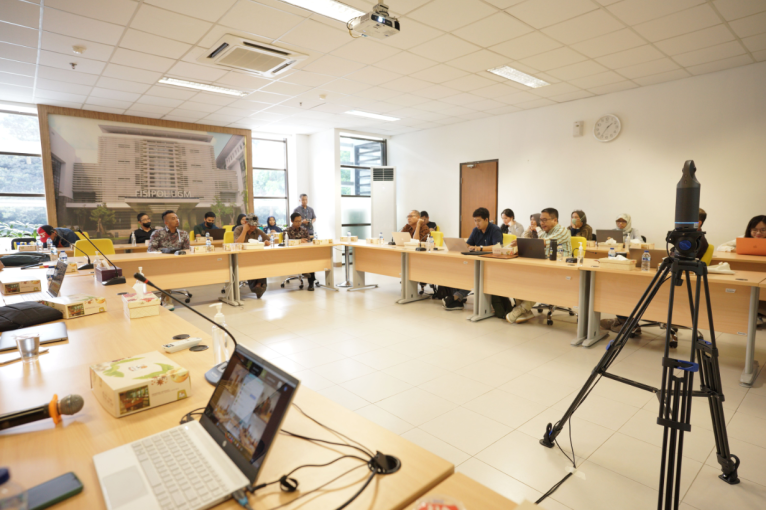
Yogyakarta, January 31st 2024─The atmosphere leading up to the upcoming 2024 elections has brought out various public dynamics. Unlike the previous elections, this time a series of controversial issues have emerged since the end of last year. These issues are then highlighted by experts and political observers, including the Faculty of Social and Political Sciences UGM. On Tuesday (30/1), academics, experts, and media held a “Discussion with Media: The Voice of Faculty of Social and Political Sciences UGM for Quality Democracy”.
“In general, our democracy is experiencing a tremendous contraction as one of the impacts of the ongoing electoral process. Issues that we need to respond to, starting from how we maintain the quality of elections as an important foundation of our democracy. There is also how we keep our social media healthy so that our democracy in the future remains in a healthy and advanced political framework,” said Dean of Faculty of Social and Political Sciences UGM, Wawan Mas’udi. The issues caused by the mixed interests of various parties are considered to threaten the quality of democracy. Therefore, there needs to be a joint effort from experts, the media, and the community to oversee the 2024 elections.
Assessment of the quality of democracy needs to be given limits according to its stages. According to Kuskridho Ambardi, MA, Ph.D., Lecturer at the Department of Sociology, the public focus in assessing democracy is only limited to the presidential election, and the assessment of the quality of the presidential election is at the bottom of the list compared to other elections. Ideally, there should be an assessment of each level of elections. This level consists of many branches, from the regional level to the central level, or the legislative level to the executive. “I think these simultaneous elections must be sustainable with each other. The public must be able to see the achievements of each candidate from where to where, so that we are not surprised by sudden candidates, or candidates from a month,” he explained.
Concern about the implementation of the election was also conveyed by the Lecturer of the Department of Politics and Government, Dr. rer.pol. Mada Sukmajati, M.PP. He highlighted the gaspol politics carried out by political elites to affect the neutrality of elections. There is a boundary between democracy and non-democracy called mutual tolerance and institutional forbearance. Mutual tolerance occurs when each member of the election respects each other and competes well. “This is a situation where I am worried that it is increasingly not happening with the current political conditions. Narratives that lead to mutual tolerance do not exist. Then there is no control from the elites. I am worried that this gaspol politics will have a bad impact on our democracy,” said Mada.
Seeing the neutrality of the elite that was considered to have declined in this election, the public as voting rights holders gave their own reactions. A significant difference compared to previous elections is the involvement of social media which plays a major role in shaping public opinion. Ario Wicaksono, M.Si., Ph.D., Lecturer in Management and Public Policy recognized the public’s awareness in shaping discussions on social media. Especially with the awareness of the three candidate pairs to use social media platforms as one of the campaign methods.
Elections as the last foundation of the nation’s democracy need to be guarded together. Political interests and certain groups should not be above the interests of the community. Elections also do not mean choosing one or two people as leaders, but also the election process needs to be considered. Hopefully, the issues that occur in the political world can be evaluated together, so that people can make their best choices on February 14th, 2024.
